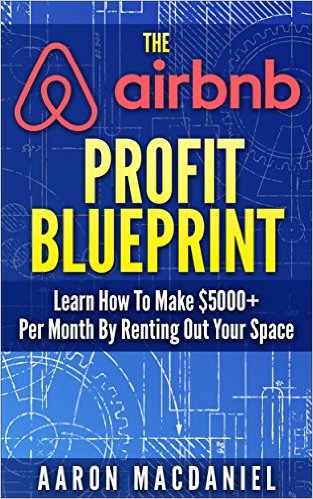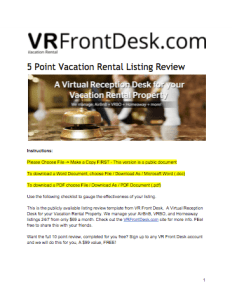Things You Should Know About getting Homeowners Insurance for your Airbnb or other vacation rental
***Note we are not lawyers, or licensed insurance agents / brokers / etc. This is not legal advice please do you own due diligence!***
If you’re a vacation rental owner and you’re asking yourself whether or not your existing homeowners or condo insurance policy covers your rental activities for Airbnb…you may not like the answer (because it is probably no).
Basically, most insurance policies for your typical owner occupied home / condo may or may not cover your vacation rental activities. If you are in doubt, it is best to talk to your insurance agent first. Before you call them, you may also want to do a little digging online and be prepared. If your insurance company doesn’t allow vacation rentals under your policy, they may drop you as soon as you tell them you are renting your place out on Airbnb. So the first order of business is a little googling of your insurance company, your state, and Airbnb to find out what others are saying.
Also note, you should never lie to your insurance company! If you do that, and something happens where you need to make a claim, your entire policy could be invalid! Please check your policy wording very carefully!
As such, vacation rentals, which are being rented out to multiple tenants for short time periods, are usually considered a business activity and insured in a different way entirely. Essentially, a homeowner’s policy does not usually cover vacation rental activities, which is why it’s important to get insurance specifically for your vacation rental.
This article will discuss the basic things you should know about vacation rental insurance.
Firstly, you should know that you can either use a business or commercial policy for your property, or a commercial rental rider on your homeowner policy. This “rider” on top of your policy will usually invalidate the section of your homeowner policy that doesn’t cover business activities, and re-write it specially for business activities of renting to people for less than 30 days at a time, or some similar wording. This is going to be more comprehensive than a homeowner policy, and usually more expensive. There is no preference of one over the other because generally, they mean the same thing and are only different terminology-wise for different companies.
Now the type of liability that a homeowner policy carries is personal liability. This is different from commercial liability in such a way that personal liability will not respond or mean anything to business activities, such as damages or theft incurred by someone staying at your rental. Basically, personal liability will only cover body injury or damaged property as a result of personal actions. That is why what’s usually suggested for vacation rentals is commercial liability. This is primarily because such liabilities are specifically designed for business, thus its coverage is overall more inclusive.
Another good idea, once you have your basic coverage sorted, is to obtain a personal umbrella policy on top of your other policies. As for a personal umbrella, you should know that it may not cover vacation rental activities, as well. While it may follow you in any place in the world, it’s only applicable to personal negligence. That is why you would also need commercial umbrella for your vacation rental. If you are wondering what’s the difference between an owner-occupied and a non-owner occupied property, you should always just remember and take into consideration that property or casualty insurance is generally not meant for short-term rentals. That means that if accidents happen with a renter staying at your house, the insurance provider may not cover for the necessary expenses as the accident happened when you were not the one occupying the house. They may even opt to simply cancel your coverage altogether. The best advice we could give, therefore, is just telling your insurance provider the use of your home so can also obtain proper coverage for it. We are so strongly against misrepresenting facts about your vacation home. If the insurance company finds out about it, they can simply deny the claim and drop your coverage.
Other vacation rental property owners may wonder if they still need to purchase insurance if their property is already part of an association with master insurance. We suggest fully understanding the situation at hand since most of the time, master insurance policies only cover common grounds and exteriors. What’s inside your unit, therefore, as well as liability and loss in there are entirely up to you. Now it is not exactly necessary to purchase flood, wind or hurricane insurance, but if your home is in a location prone to natural disasters, we do suggest you invest on this. Just be sure to research the typical cost of this type of insurance so you can gauge how much you should willingly pay.
Many people ask “is Airbnb’s insurance enough”. Read more about that in an upcoming article.
What about Homeaway’s Additional Insurance offering for each stay? Is that worth it? Read more about that and compare it to Airbnb’s coverage in this upcoming article.
In looking for an insurance company, it is best that you look at the company’s financial status. You can review financial ratings, history, how long they’ve been in business and a few reviews on websites such as www.ambest.com.




Trackbacks/Pingbacks